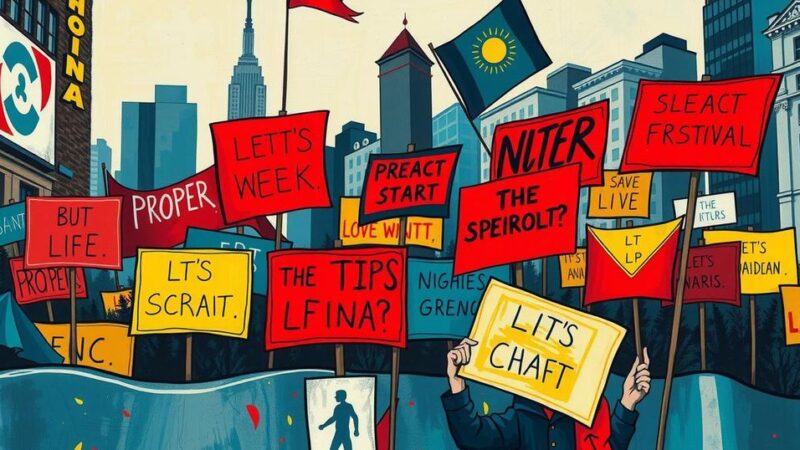The article discusses the historic revolutionary movements in Puerto Rico, including the Nationalist Party and groups like the FALN. These organizations aimed to combat U.S. colonial rule and advocate for Puerto Rican independence, often resorting to armed struggle and political activism. It highlights significant events such as the Cries of Jayuya and Utuado and response actions, emphasizing the ongoing fight against oppression and the importance of education in the liberation movement.
The struggle for liberation from oppression in Puerto Rico is significant and requires a revolutionary communist, nationalist party. Historically, the Nationalist Party of Puerto Rico, established in 1922, fought against U.S. colonial rule following the Spanish-American War. Under the leadership of Pedro Albizu Campos, the Nationalists organized events to promote nationalism and advocate for independence, despite facing severe repression from the colonial government.
The Gag Law, which criminalized Nationalist activities, was enacted in response to the party’s efforts to overthrow colonial rule but was later ruled unconstitutional in 1957. In the early 1950s, the Nationalist Party engaged in armed insurgency, highlighted by the uprisings known as the Cries of Jayuya and Utuado in 1950, responding to aggressive police actions against its members.
Notable events included an assassination attempt on President Truman and an armed attack on the U.S. Capitol in 1954, where four Nationalists were arrested for raising the Puerto Rican flag during the shooting. Despite failing to overthrow the U.S. colonial government, the Nationalist Party’s actions inspired subsequent revolutionary efforts that recognized the need for armed revolution intertwined with political education.
Groups such as the Armed Liberation Commandos (CAL) and the Armed Forces of National Liberation (FALN) emerged in later years, carrying out attacks against colonial and capitalist targets while condemning injustices against Puerto Ricans. The FALN, in particular, conducted armed struggles to demand the liberation of imprisoned Nationalists and implemented military strategies inspired by global revolutionary leaders, linking their actions with the Puerto Rican working class.
From the American Civil Rights Movement to the atrocities faced by Puerto Ricans, the FALN responded to systemic racism and oppression within the community, showing solidarity with many marginalized groups. Their struggle reflected a commitment to armed resistance against colonialism and imperialism, emphasizing the importance of education, political organization, and the necessity of rallying the Puerto Rican and diasporic communities.
In summary, the revolutionary armed movement in Puerto Rico has a long history, marked by numerous ups and downs. While contemporary conditions may not call for armed resistance, the historical significance highlights the ongoing struggle against white supremacy and imperialism. The sacrifices made by these groups and individuals emphasize the broader fight for liberation and social justice for all oppressed peoples.
The article examines the history of revolutionary movements in Puerto Rico, particularly focusing on the Nationalist Party and subsequent armed groups. Following U.S. occupation, various nationalist and socialist factions emerged, motivated by a desire for independence and social justice. The struggles undertaken by these groups underscore the broader themes of resistance against colonialism and imperialism, as well as the intertwining of armed struggle with political education and community organization. It situates Puerto Rican revolutionary efforts within a global context while addressing the specific historical and sociopolitical conditions that have shaped these movements.
The narrative of Puerto Rico’s revolutionary armed resistance illustrates a prolonged struggle against colonial oppression and racial injustice. Despite facing severe challenges and opposition, movements like the Nationalist Party and the FALN have shaped the political discourse around independence and social justice. Their commitment to fighting for liberation, alongside political education and community mobilization, reflects a resilient spirit in the face of systemic injustices, emphasizing the need for continued advocacy and action for Puerto Rican rights.
Original Source: www.workers.org






